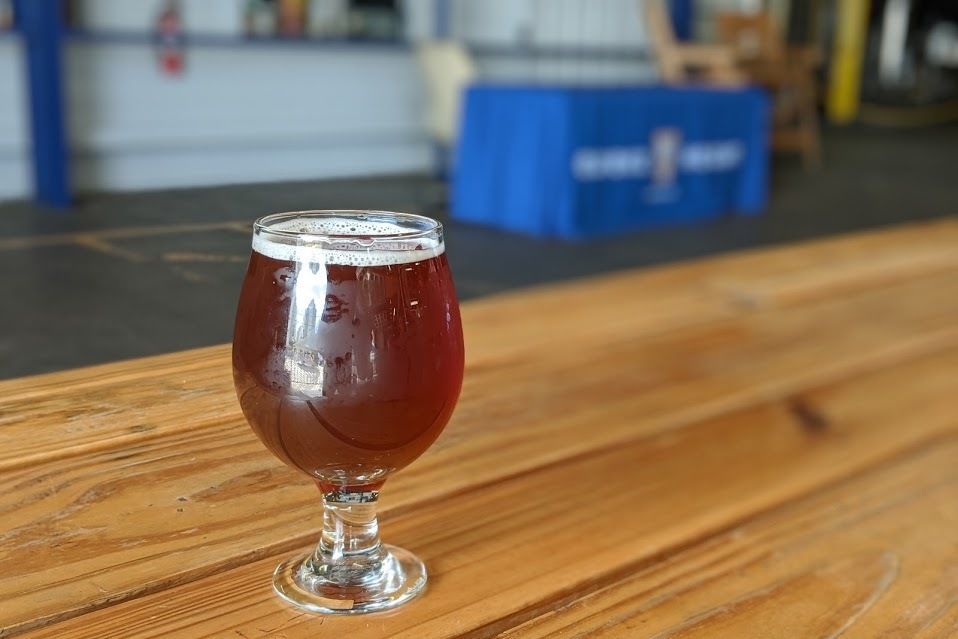
Late on Friday, the Texas Alcoholic Beverage Commission amended its interpretation of an executive order issued by Gov. Greg Abbott that had paused dine-in service for certain brewery taprooms during the COVID-19 pandemic.
The governor's order from June 26 stated that any food-and-beverage establishment whose majority gross receipts (51 percent or more) come from the sale of alcohol must close for dine-in or drink-in service. That order effectively shut down bars throughout Houston. On July 13, however, the TABC passed on updated verbiage about what exactly constitutes an establishment whose majority gross receipts come from the sale of alcohol.
Specifically, breweries found themselves targeted by the new verbiage, which stated they must include all off-site sales to distributors in the calculation that determines their percentages. That affected places like Saint Arnold Brewing Company, who has a robust dine-in operation but distributes throughout Texas and Louisiana; the new language meant Saint Arnold was defined as a bar and had to pause dine-in service.
Friday's change of heart from the TABC is considered a victory for breweries with kitchens.
"This is great news for everyone involved," said Saint Arnold Brewing Company Founder/Owner Brock Wagner in a statement.
But it's also the latest event in what's been a turbulent ride for breweries across Houston and the rest of Texas trying to stay afloat and maintain operations. When COVID-19 first impacted the state in mid-March, breweries, along with bars and wineries, were among the hardest hit as they had to pause service without being able to offer takeout (unlike restaurants, which were able to pivot to takeout immediately).
In the following days bars, breweries, and wineries were permitted to sell takeout drinks as long as it came with the purchase of food. Breweries were also allowed to sell takeout products. But when Abbott first opened the state and allowed restaurants to seat people in dining rooms again, bars, breweries, and wineries were held back.
Before closing bars for a second time, Abbott had expressed regret at re-opening them quickly. Part of the problem, Texas craft beer advocates say, is breweries have been lumped into a very broad definition of bar, and the latest fiasco over how a brewery is defined underscores that.
"To suddenly have just the arbitrary distinction that businesses that garner more than 51 percent of receipts from alcohol sales have to be shut down is a shockingly broad and inept way to address the situation," said Charles Vallhonrat, executive director of the Texas Craft Brewers Guild, the largest craft advocacy and lobby group in the state.
Vallhonrat speculated that Abbott had a hand in the definition change of a brewery but couldn't understand why such a tweak happened in the first place.
"If you read the executive order very narrowly, I can see how you come up with that," he said. "But the governor wrote that executive order and has, for many other industries, been very lenient with parts of it. Then he's been decidedly strict on others."
Compounding the definition fiasco is a second communication issue that nearly sent brewers over the edge. On July 16 the TABC highlighted a snippet of guidance on its website, stating that facilities could modify their premises for another usage by getting a temporary license (whose fee would be waived by the TABC). The next day the TABC again highlighted the guidance. Brewery owners saw this as a message that they could modify their taproom operations and open patios as spaces adjacent to their permitted facilities.
But five days later the TABC clarified the guidance, alerting breweries that if they were still largely reliant on alcohol sales they couldn't start selling booze by simply creating an adjacent patio.
"We talk to brewers all the time, and back in March there was a lot of concern. Now that concern is definitely darker," said Vallhonrat, who speculated the TABC was trying to help breweries but got slapped down by Abbott's office. "Back in March everyone was rallying together to help everybody, and people were looking to protect the American small business. There's none of that protection this time and it's worrisome and dark for breweries."
The Texas Craft Brewers Guild is now petitioning Abbott to allow breweries to ship and deliver product to customers. Something like that could especially help smaller breweries without a grocery store presence, like Southern Yankee Beer Company up near Cypress Station. According to business manager Alex Porter, the brewery that opened in late 2018 is down 50 percent in sales since April when compared to sales between December and February.
Right now, said Vallhonrat, the small breweries especially can use all the help they can get.
"Go get beer to-go, consider buying merch," he said. "Going to the brewery itself and supporting directly has the most impact."
"craft" - Google News
July 29, 2020 at 12:33AM
https://ift.tt/2X6dFdb
Craft Brewing Community Feels Disrespect During Pandemic - Houstonia Magazine
"craft" - Google News
https://ift.tt/2YrY2MS
Shoes Man Tutorial
Pos News Update
Meme Update
Korean Entertainment News
Japan News Update
Bagikan Berita Ini















0 Response to "Craft Brewing Community Feels Disrespect During Pandemic - Houstonia Magazine"
Post a Comment